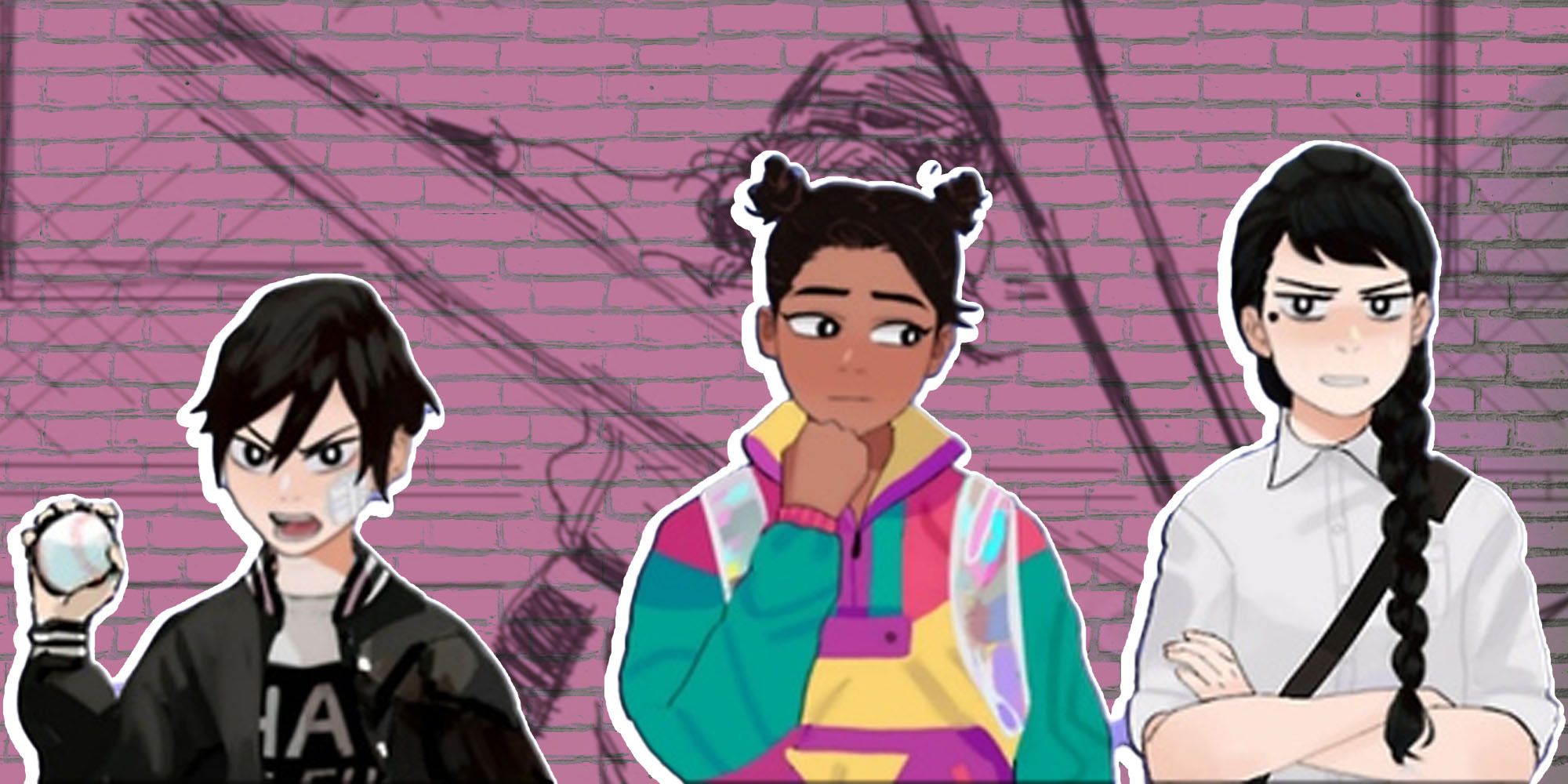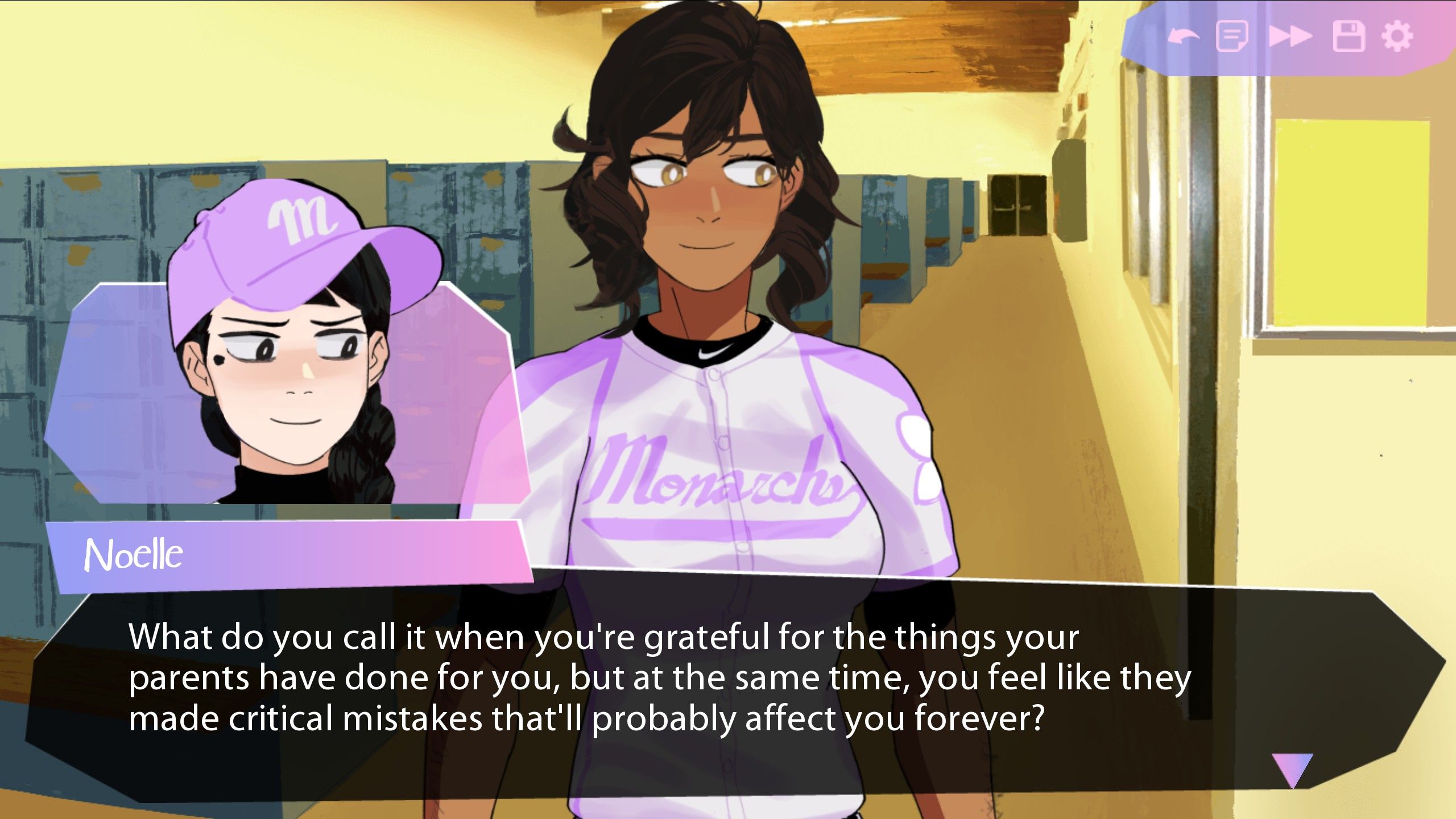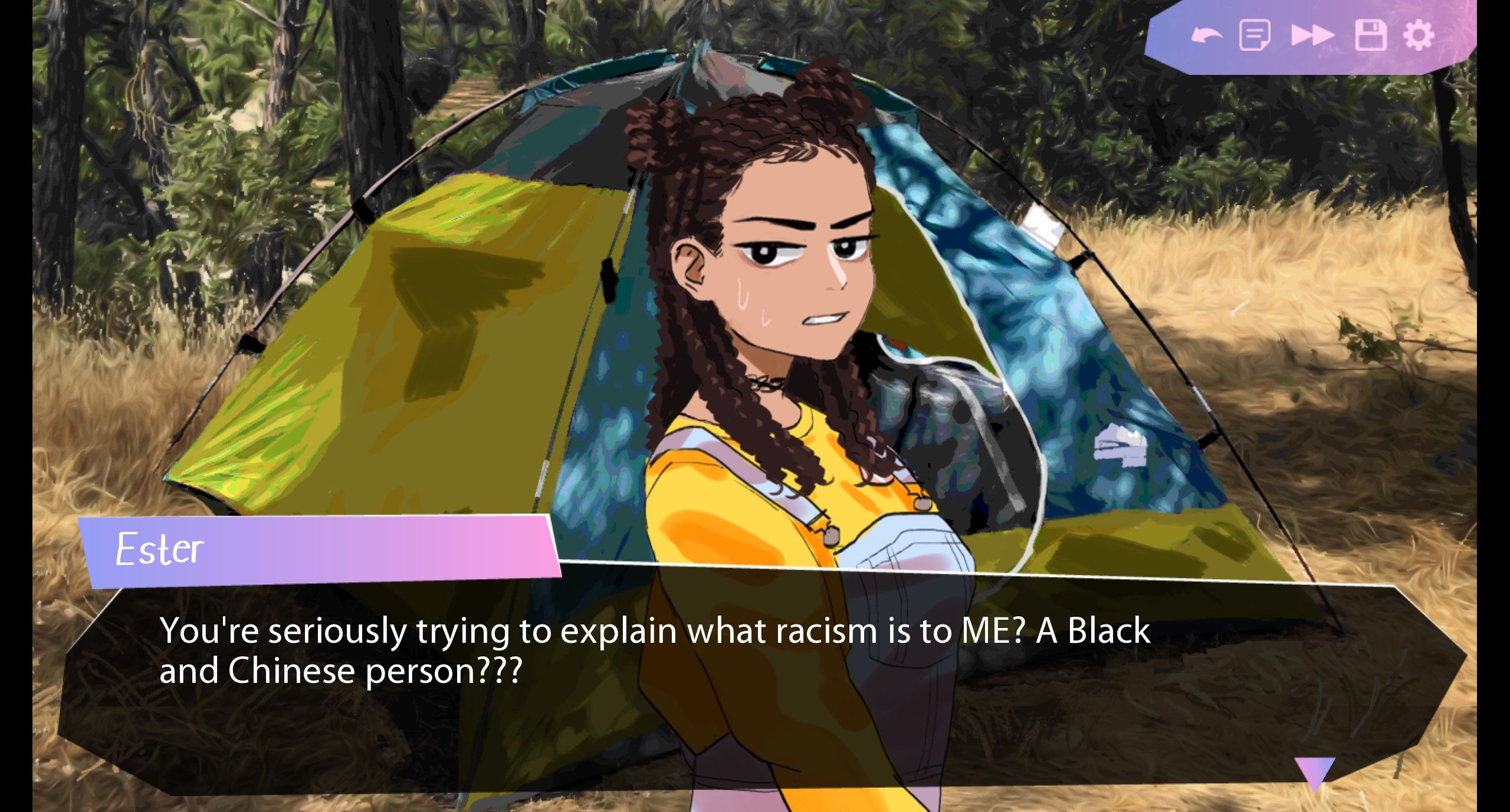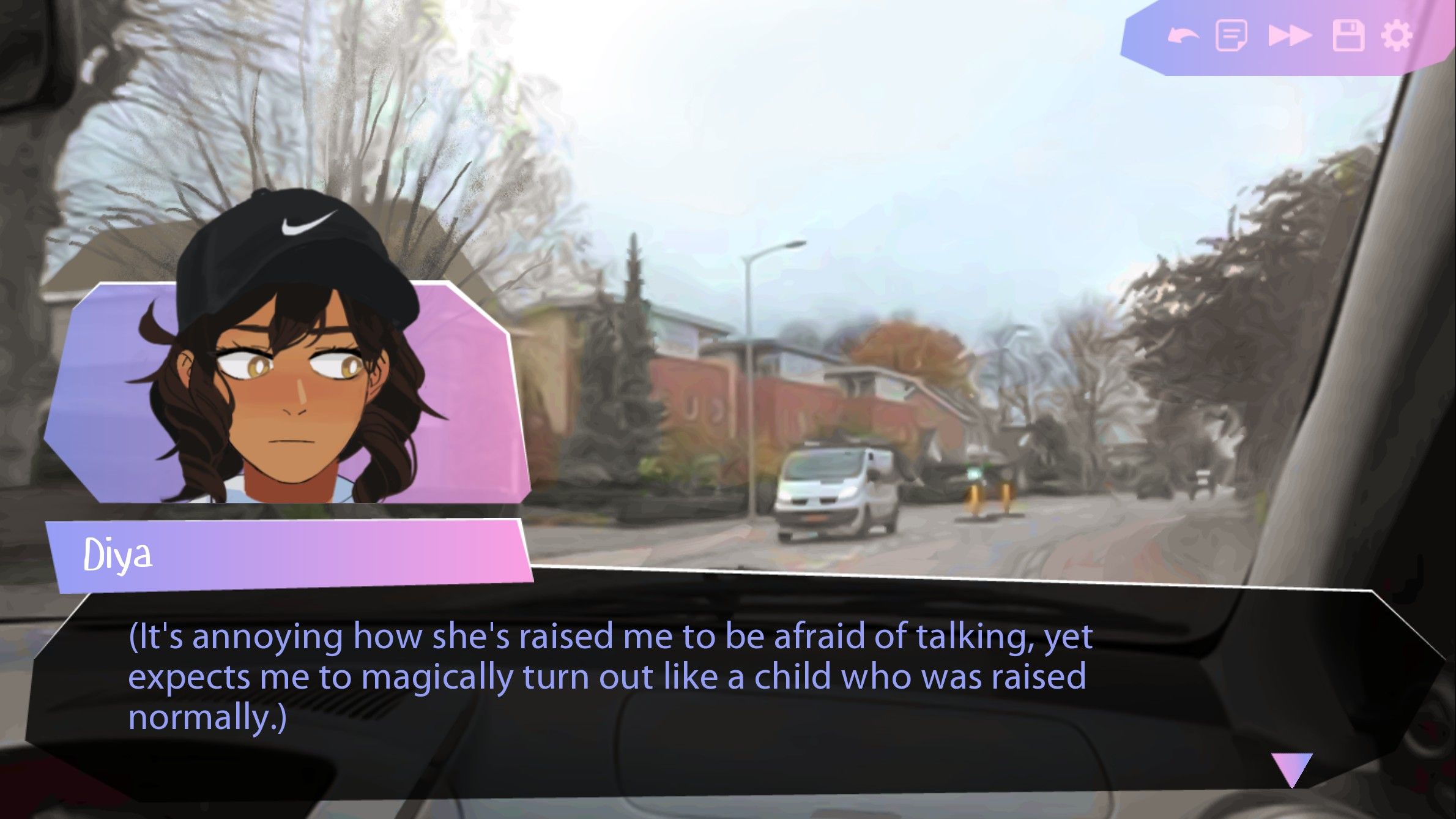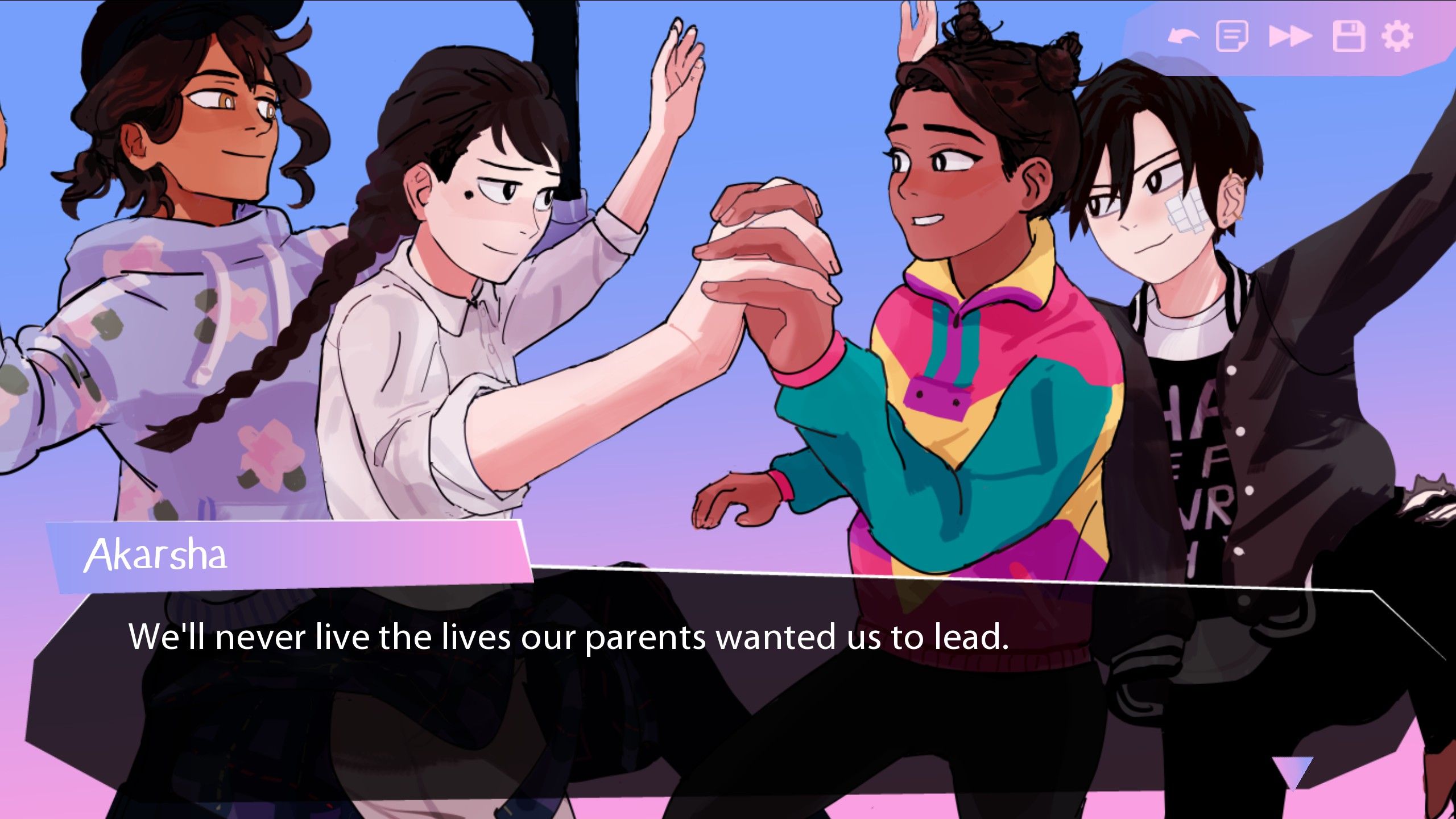Butterfly Soup 2 is an impactful commentary on millennial youth from queer and immigrant backgrounds. Its cast of sapphic characters demonstrate how hard it is to grow up in a world wrought with misconceptions and misunderstanding, and conjured bittersweet memories of my own life.
Before the advent of widespread social media, we often depended on archaic websites and the love of our friends to find ourselves, praying that our families didn’t throw us to the curb after discovering our deeply held secrets. It was a life with clear imperfections, but we saw through them regardless and became a generation of loving, empathetic, and driven people.
People playing Butterfly Soup 2 will resonate with certain characters more than others, or find small pockets of bittersweet wisdom in all their tales of familial woe. It’s designed to reflect the generational divide between more radical millennials and the parents who brought them into the world, often through hardship we have never really had to comprehend. Diya, a lesbian with hearing problems and a love for sports, originally came from India, and both her parents possess the attitude that their daughter must only hang out with other Indians or risk dirtying her view of the world, poisoning her mind and chances of a successful future.
In reality, she already has a Korean girlfriend and no interest in abiding by traditional femininity. An argument breaks out after Diya asks her mother to buy some razors to help manage her body hair, but she’s forbidden because it will attract unwanted boys and disrupt her studies. Her mom’s outlook is outdated, but you can see where she’s coming from. She was raised that way, while her children are growing up in a foreign environment they’ve had to learn from the outside, losing cultural and personal touch with the closest people in their lives. Diya was raised to feel ashamed and pressured into behaving a certain way, and when that trauma bubbles to the surface she’s chastised for it.
This cycle is present throughout most of the cast, each of their arcs designed to reflect specific problems that surface in immigrant families moving across the world. Noelle, who is usually rather uptight and pedantic, was forced to take language lessons as a child, despite knowing it would never benefit her in the real world. Then she takes a family trip to Taiwan and can’t understand a soul, simultaneously blaming both herself and her parents for not treating her culture with the deserved importance. Like so many things, it drifted away and became lost in translation.
Noelle asks why her parents ever bothered moving to the United States, knowing it would turn her into an awkward, sheltered, and confrontational woman. The reality is, they didn’t have a choice, running away from a war and raising their daughter in a place that felt safe. The idea of Taiwan prospering in the future was an unknown conclusion, so her parents used the hand they were dealt and did the best they could - like most do under such unfair circumstances. It breaks my heart, and reminds me of the myriad sacrifices parents made to make us the people we are today, regardless of the flaws and trauma that define us.
I was raised in a big family, sharing the family home with nine siblings at its peak, and my parents constantly worked to provide for us. That often meant killing time with friends and video games, all while dealing with a constantly adjusting family dynamic as certain people left and others drifted into the picture. I watched people take joy in the birth of grandchildren, mourn at the loss of grandparents, and figure out drama I had no way of deciphering. All I could do is watch, and pick up all the unintended bad habits that came with them. I don’t begrudge them now, and my family is so accepting of me as a queer trans woman, yet parts of my youth were defined by spiteful views of racism and homophobia from relatives. Whether it was through genuine belief or sheer ignorance doesn’t matter, that subconscious bias sinks into your immature mind and stays there, often lingering well into adulthood as you’re forced to reanalyze views that aren’t even yours, but still refuse to leave.
Min goes through this as they claims that they didn’t think Black people cared about education to a friend who happens to be Chinese and African-American, spouting out a piece of racism that, at least to them, has become normalised. They was raised by parents who worked so hard to provide for their kids, so much so that they overlooked racist comments and attacks which as a consequence would become normalised acts of aggression, causing Min to be a brash, rebellious teenager who believed standing up for yourself is necessary. Their friend doesn’t accept this apology at first, and why should she?
Min was racist, they fucked up, and needs to check themselves and the bigoted views they hold in order to become a better person. Few games take this sort of approach with discrimination, and how generational ignorance is a flaw to be dissected and improved on instead of rejected as an outright character flaw. Many of us are guilty of this in some way whether we’d like to admit it or not, the systems and people that raised us passed on these traits, and all we can do is subvert them best we can.
Butterfly Soup 2 ends with a message of collective serendipity as the cast unite in a sudden dance amidst the school’s cultural festival. They come to realise that, despite their troubled families and strange upbringings, all of these random occurrences brought them together, allowing them to become the people they are today regardless of whatever flaws might ail them. It’s a beautiful message of hope that doesn’t sugarcoat shortcomings, and that honesty is so important.
As Noelle says in the game’s final moments, “it’s twisted us all into strange and flawed shapes, like butterflies born into a fool’s spring, but it’s the circumstances that gave us you and me, right here, right now.” You can tell that, at the end of it all, she wouldn’t change anything for the world.

